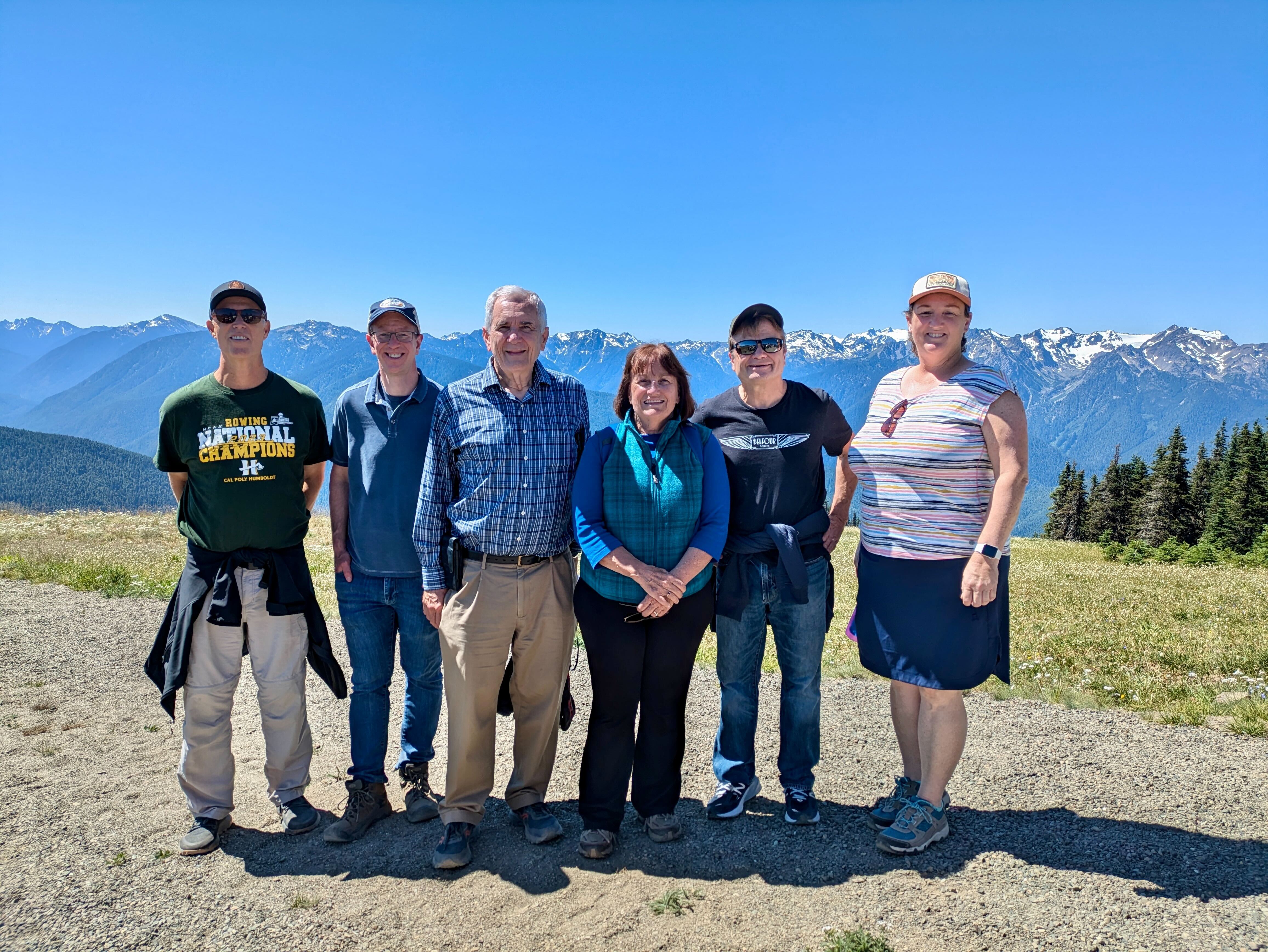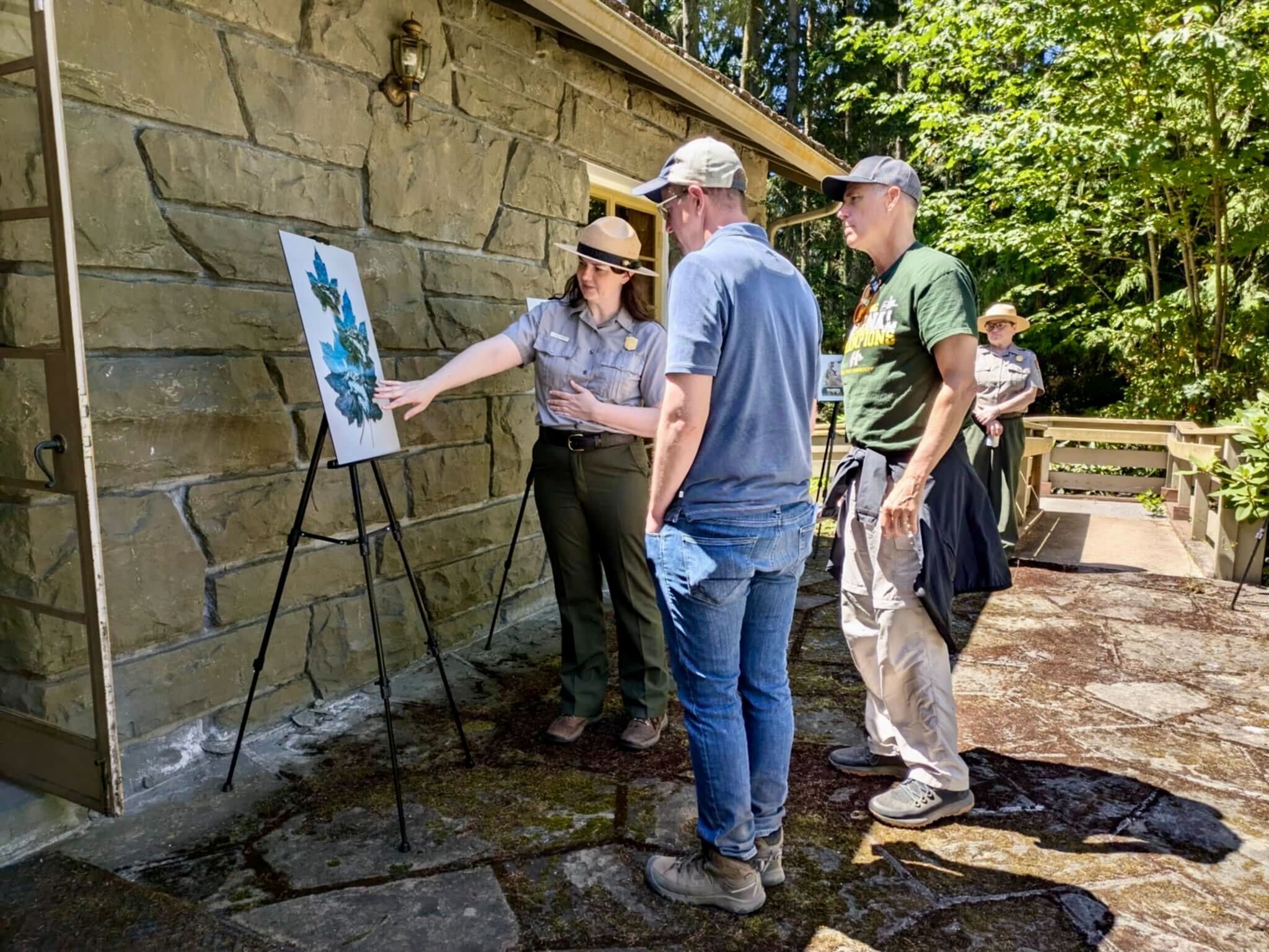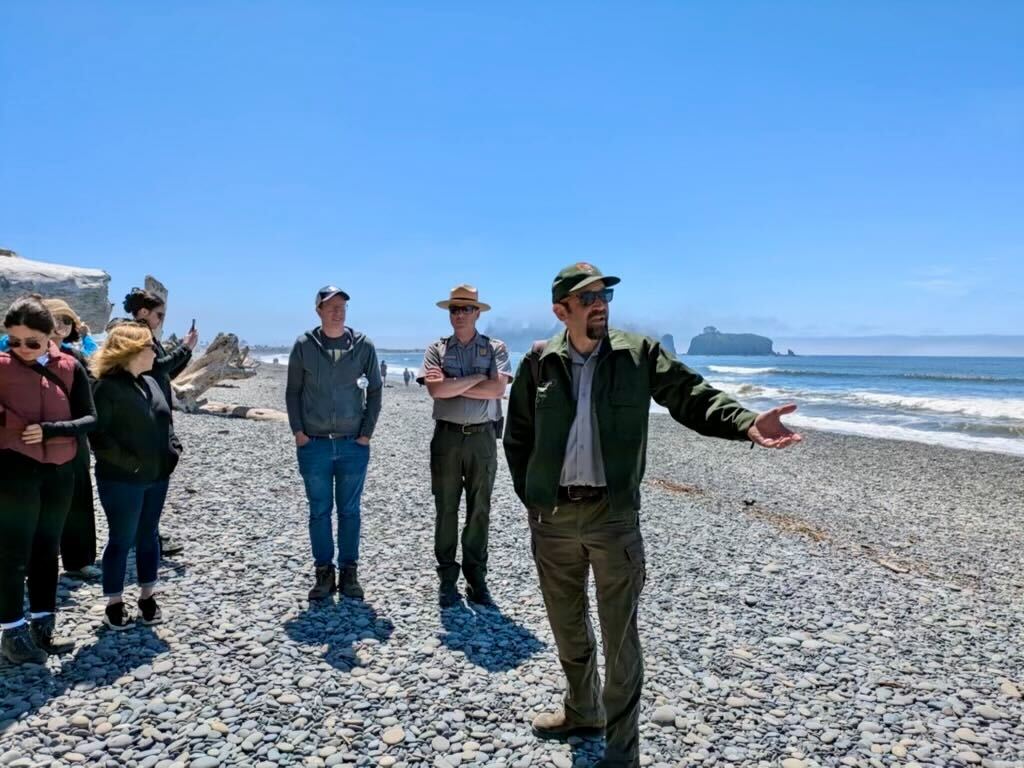Highlighting Our Region’s Priorities
Hello Folks –
A lot has happened since my last newsletter (two weeks ago). Let’s jump right into it.
Speaking Out Against Political Violence
In the wake of the shooting in Pennsylvania, it’s important for all of us to be perfectly clear: Political violence is never acceptable.
In addition to praying for former President Trump’s full and swift recovery and for all those impacted by this most recent act of senseless violence, I'm also praying for our country. We must bridge the divisions, prevent these threats of political violence, and heal this nation. And each of us must recognize that we all have a role to play. Instead of accepting toxic polarization as the new normal, our country must find new ways to foster dialogue, address sources of conflict, and bridge differences.
President John F. Kennedy once said, “In a democracy, every citizen, regardless of his interest in politics, ‘holds office’; every one of us is in a position of responsibility; and, in the final analysis, the kind of government we get depends upon how we fulfill those responsibilities." In other words, each of us has some work to do.
Highlighting Our Region’s Priorities in the Face of the Climate Crisis
A critical part of my job is to elevate the issues important to our region – so it was an honor to host Members of Congress from the Sustainable Energy & Environment Coalition (SEEC) at Olympic National Park (ONP) and on the Olympic Peninsula to talk about some of the unique challenges and opportunities facing Northwest Washington. In Congress, Members of the Sustainable Energy and Environment Caucus work to advance policies that promote clean energy innovation, develop renewable energy sources, address climate chance, protect our nation’s air, water, and natural environment, and create family-sustaining jobs in the clean energy and domestic manufacturing industries.

As part of that work, SEEC members occasionally visit places in our country to learn more about how climate change is impacting our National Parks and public lands. And at ONP – a world-renowned national park that includes several distinctly different ecosystems – folks were able to learn from leading scientists, park officials, tribes, and community leaders, about how increasing temperatures, decreasing snowpack, and changing precipitation patterns are altering those ecosystems, impacting cultural resources, changing the experience of park visitors, and impacting local economies. Here’s a recap of our two-day journey through the beautiful Olympic Peninsula!
.jpg)
Climate Impacts on Our Region’s Glaciers and Waterways
First, we traveled to Hurricane Ridge, where we briefly discussed efforts to rebuild the Hurricane Ridge Day Lodge. I am working hard in D.C. to secure federal funding for this project so that future generations can have an outstanding experience visiting our park.
Then, we met up with ONP leaders and scientists on the ridge to discuss the impacts of rising temperatures on the glaciers in the Olympic Mountains. As most folks from our region know, many local rivers and forests rely on glacial runoff as sources for water, but melting glaciers present a threat to those ecosystems and the species that depend on them. Because they grow or shrink in response to snowfall and snowmelt, our region's glaciers are indicators of the state of climate change.
In recent years, our glaciers have experienced significant melting and decreasing snow packs. That’s bade news for the regional ecosystems that rely on that water source. That includes the Olympic National Forest and native fish species, such as salmon, that rely on our region’s waterways to migrate and spawn. The group also learned more about the Terminus project, a glacier memorial project that aims to bring awareness to the declining state of the region’s glaciers by immortalizing the glaciers on the Olympic Mountains through art.

Working to Restore Native Salmon Populations
The delegation then met with tribal leaders from the Lower Elwha Klallam Tribe near the Elwha River to discuss the Elwha Dam removal project – as well as continued efforts to remove fish passage barriers from local waterways and protect native fish species, including salmon. Fish barrier removal projects, which restore access to upstream habitats, are necessary for the recovery of the region’s salmon populations, which are so vital to our region’s economy, culture and way of life, including for our region’s tribes.
These fish passage removal projects are about protecting clean water and recovering salmon populations in our region, while continuing to uphold treaty rights and responsibilities for local tribes who depend on ancestral fishing grounds to continue their way of life. Having the federal government contribute to these efforts underlines our commitment to protecting the environment and the legacy we leave for future generations.
That’s why I helped champion things like the creation of Culvert Aquatic Organism Passage Program, which was included in the Bipartisan Infrastructure Law (the largest long-term investment in America’s infrastructure and competitiveness in nearly a century!). This new culvert program is the first federal program devoted entirely to culvert restoration, and it’s already paying dividends in our region!
From there, we headed out to Lake Crescent, where we discussed the importance of partnerships in the natural resources arena and why the federal government needs to step-up and do its part to support local projects. We discussed new technologies being used by Olympic National Park to prevent waste from entering our lakes and rivers.

Protecting Against Sea Level Rise and Tsunami Inundation
To round out our tour, the delegation traveled out to Rialto Beach with the Quileute Tribe, where we discussed the federal government’s commitment to upholding tribal treaty rights, as well as the effort by Tribes in our region to move to higher ground due to rising sea levels and the threat of tsunami inundation.
As many readers of this newsletter may recall, it’s a huge priority of mine to help secure federal funding for local Tribes in our region for climate resilience efforts in order to provide a lifeline for communities on the front lines of the climate crisis. This funding can help empower Tribes to implement critical projects that will enhance their resilience against the ever-increasing threats of climate change, including rising sea levels. It is imperative that we continue to support these projects, as they not only protect Tribal homelands and heritage but also pave the way for a sustainable future for Indian Country.
Tsunamis threaten to flood communities, crush local economies, and put public safety at risk. The federal government has a responsibility to look at steps to help keep folks safe. That’s why I recently introduced bipartisan legislation that will help improve the National Oceanic and Atmospheric Administration’s ability to send tsunami alerts to the public, paving the way toward a sustainable future for those who live in tsunami inundation zones and ensure that local residents have adequate warning before disaster strikes. This bill will empower coastal communities and Tribes to implement critical safety plans.
From highlighting tribal communities moving to higher ground because of rising sea levels, to the work being done to protect the environmental health of Olympic National Park, it was valuable to showcase the impacts of climate change on our region to Members of Congress who focus on these issues and serve on key committees back in DC. I’m grateful to my colleagues who took the time to visit our neck of the woods and hear from local community leaders, park officials, tribes, and environmental advocates.”
Celebrating Wins for Transit Projects in Pierce, Clallam, and Grays Harbor Counties
Folks across our region rely heavily on local transit agencies to get where they need to go. These transit systems connect tens of thousands of our neighbors to jobs and critical services and are vital to local economies and the future of our rural communities.
That’s why I was proud to help secure new federal investments from the U.S. Federal Transit Administration for three major transit projects in our region. These investments included more than $14.7 million for Pierce Transit, as well as more than $6.2 million to support the Washington State Department of Transportation’s projects in Clallam and Grays Harbor counties.
In Pierce County, we will see this federal investment support the purchase of new battery electric buses and the installation of new charging equipment to support Pierce Transit’s electric fleet. This project will improve the overall efficiency of bus service in Pierce County and solidify its ability to serve folks across the region for years to come.
And we are seeing instrumental investments in other parts of our region, like in Clallam County, where funding for WSDOT’s Clallam Transit Buses and Para-Transit Vehicle Replacement Project will support the replacement of heavy-duty buses that have surpassed their useful life with new vehicles. These new, more efficient and more reliable vehicles will ensure that folks in places like Port Angeles have reliable transit options that are environmentally friendly and readily available to get them where they need to go.
And finally, in Grays Harbor County, funding for WSDOT’s Grays Harbor Transit Authority Hoquiam Maintenance and Operation Facility Rehabilitation project will support the renovation of an aging maintenance and operations facility in Hoquiam, including the upgrading of parking areas, the installation of new surfacing, and the enhancement of the existing roof. This project will ensure that folks in Grays Harbor County have access to safe and reliable transit options into the future.
Seeing the federal government support our local transit systems has long been a focus for me and for folks across our region. These investments mean we can see forward motion on crucial investments, which will enhance overall service quality and reliability, especially for our rural communities. It’s also about expanding access to tens of thousands of our neighbors, connecting them to jobs and critical services. And since these are federal funds, the costs of these improvements won’t be solely borne by local taxpayers. These investments are a great win for our neck of the woods and I’m thrilled to have been able to get them across the finish line!
Working for You
Standing Up for A More Equal Society
Thanks to Michael Goodnow and the team at Kitsap Pride - both for the kind welcome and for putting on such an amazing festival year after year!
.jpg)
Prioritizing Local Infrastructure Projects
The Lake Swano dam in Aberdeen is considered a "high hazard" and poses a catastrophic flooding threat to the South Aberdeen community and Grays Harbor College. That's why, as a member of the House Appropriations Committee, I'm working to secure new federal funding for remediation. Federal funding for this project will help ensure the cost of this important project doesn't just fall on local taxpayers - and it will help ensure we protect critical fish and wildlife habitat. I appreciated stopping by and getting a tour from the team at GHC. I'll keep at it!
.jpg)
Celebrating A Local Leader
John Clauson's passionate and caring stewardship of the City of Port Orchard will have a positive impact for generations to come. John spent more than 40 years on the Port Orchard City Council, and I was honored to attend a community gathering where a new street was named after him (“John Clauson Way”) and a monument was placed to honor his tremendous service. I am grateful for his partnership during my years in Congress!
OK – that’s it for now, folks. As always, I’m honored to represent you.
Sincerely,
Derek Kilmer
